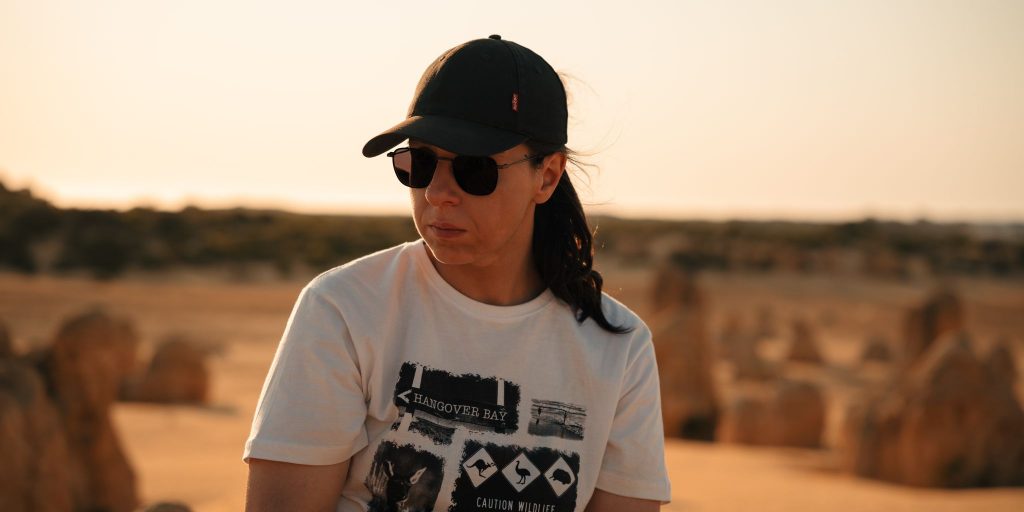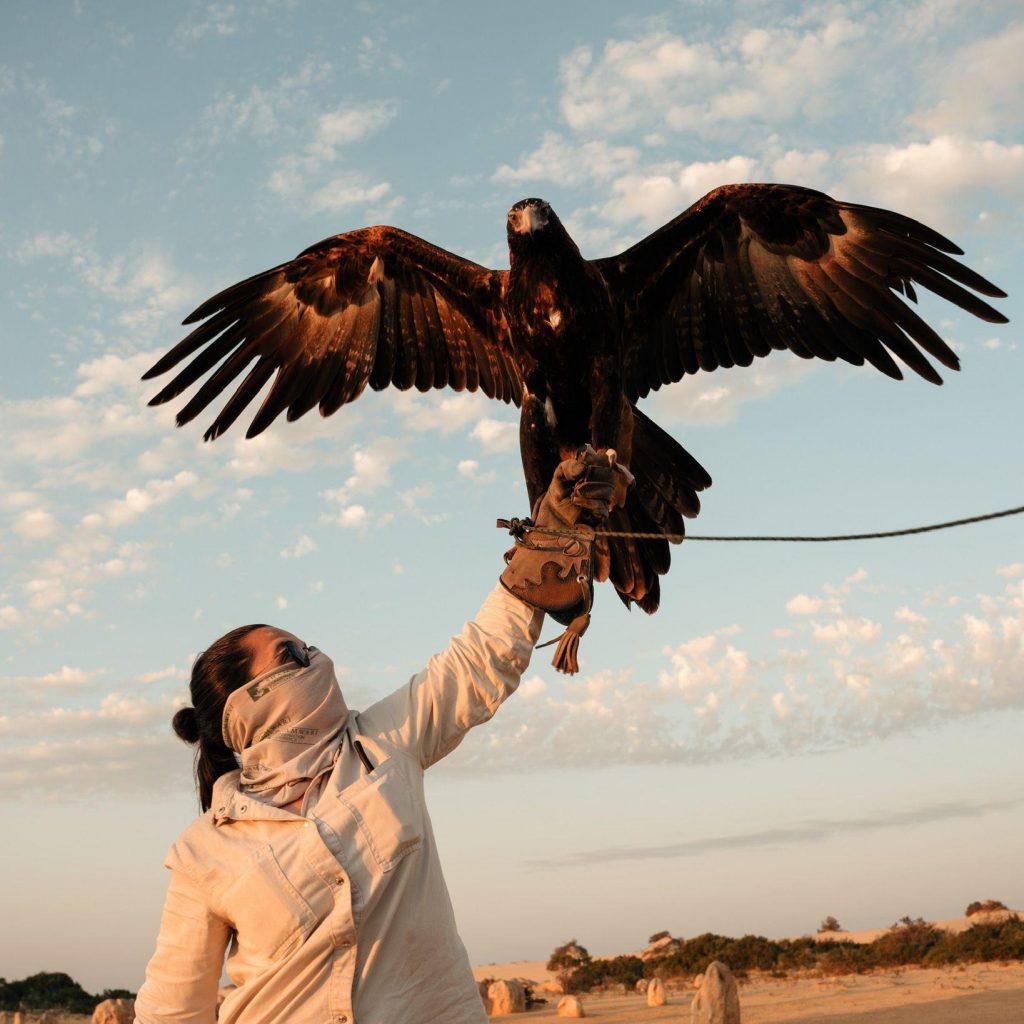Meet Sevim, who studied a BSc Wildlife Conservation with Zoo Biology and MSc Wildlife Documentary Production.
What inspired you to choose your course?
Like everybody else who is doing the course, I love nature and I always have done. Ever since I was a little girl, I would sit and watch Sir David Attenborough programmes like Planet Earth, Life in Cold Blood, The Life of Mammals, the list is endless. I knew I always wanted to work with animals in some shape or form.
I knew that I needed heaps of dedication, knowledge, and a degree for whatever career I wanted to do. This course provided me with everything I needed to build on science and research – I read the specifications and compared it with other universities to ensure I was going to get the foundations I needed.
The courses I studied at Salford was the best decisions I’ve made. I remember telling my lecturer that I wanted to work in Wildlife TV and that’s when he mentioned the Wildlife Documentary Production programme. I had my eyes set on this the moment I began my undergraduate degree.

Can you tell us which parts of the course you enjoyed the most (lectures, trips, modules, projects, topics, any opportunities etc)?
I am a visual person, so I loved most of the elements that came with the course. I particularly enjoyed the trips so the tropical trip to Brazil was something I wanted to do. During these trips, I was able to tell stories and use my creativity by visually taking in environments, habitats, species, and elements.
I loved the contents of the lectures and always found myself speaking with the lecturers about these topics at the end. My placement tutor was an incredible support because I wanted to branch out in case the whole Wildlife TV dream didn’t come true. I took a placement in Spain rehabilitating big cats and then examining roadkill in Cardiff to see what jobs I could possibly get into. I was able to utilise everything that was offered to me and prepare myself for the future.
Which topic/area of focus did you choose for your final dissertation project?
I chose to focus on Paul Rees – who is still to this day, one of my biggest influencers. Wildlife poaching on Elephants and rhinoceros to see over a 42 period of wildlife trade was the topic. I would regularly visit his office to discuss what would work and what didn’t. I was incredibly involved in this project, and I thoroughly enjoyed learning about it.
With Paul’s incredible guidance and space to grow, I managed to delve into a world of poaching and it was eye-opening. I learnt a lot about both sides of this illegal industry – it allowed me to understand the lengths in which individuals go to ensure the safety and survival of their families.
Where do you currently work and how did you find out about the role?
I work at the BBC NHU where I reached out to the talent team in the hopes that an interview would come my way. In this industry, it is not what you know, it’s about who you know. Networking is the key to breaking into the industry and for some parts of it – working for free. I emailed multiple talent teams every week to see if there would be any upcoming opportunities.
Tell us a little bit about your current role and your day-to-day responsibilities.
I am researcher on a VFX lead Natural History Documentary, strictly under NDA so unfortunately, I cannot share details about what I am doing.
My responsibilities include the following:
- networking and researching contributors who are specialised in their area
- researching a multitude of subjects
- assisting in story making
- finding ideas and solutions
- organising shoots for crew members
- setting up calls with contributors
- viewing edits
- annotating scripts
- fact-checking science
- assisting with on-location prep

Can you tell us about any of the projects you’re working on? What do you enjoy most about your role?
Unfortunately, not this one – but I can say that I worked on the children’s book for BBC Earth, the newly BBC Earth Experience. I worked with Ted Oaks on Great Lakes Untamed which is readily available on YouTube for anyone who would like to watch and Spring watch 2022, which was one of the best experiences I’ve ever done.
I enjoyed the live element and getting stories ready for the live programme. I learnt so much about research, logging footage and birds, which has led me to love birdwatching. This current project is by far is the best as it focuses on my favourite topic, and I am looking forward to showcasing this when it gets released.
How do you feel your course prepared you for your future employment?
Although the course didn’t prepare me to the full extent as it didn’t focus on Wildlife TV , it did teach me the fundamentals of hard work and the ability to build professional relationships, ready for the working world.
What I learnt the most was trust and this is the foundation of a strong team. It goes a long way if a producer or series producer trusts you to do a good job. Never go into a job thinking you know everything because life in industry is about being open to the possibilities of learning more.
I am still learning to this day, and I love learning new things. Everyone has strengths and weakness, so lean on those strengths and weaknesses and vice-versa. These are the qualities that will get you very far.
What advice would you give to prospective students or those seeking a career in your field?
As I mentioned above –
- Do not go in thinking you know everything, show yourself as a person you’d like to be seen as, hardworking, fun, passionate, friendly, eager to inspire future generations about the beauty of wildlife TV.
- Do your research – you don’t have to be a specialist, but it is always best to know what is happening in the Wildlife TV world or the industry you want to get into, so you can ensure that you answer interview questions efficiently.
- It takes time, don’t give up – I knew this would be an extremely hard industry to get into and regardless of the countless rejections and failed attempts, it is not personal. You have to grow, gain as much available experience, and keep driving forward. I would never change a thing I did and now I am at a company making documentaries I was watching when I was 10 years old.
- Network, network, network – Start now, find contacts, or pick specific lecturers’ brains on who they know, having a good start by knowing people who will help you.
- Work for free – I’d encourage it, but ensure that you are financially stable or have support from family. It kept me going for 3 and half years, and I refused to give up. After I got my role, I quit and it was the best thing for me.
Have you thought about the next steps in your career and where you would like to progress to?
Remain at the BBC as a researcher on another contract for another year or so and then start applying for assistant producer roles. The dream is to become a Director Producer, perhaps even higher, creating my own documentaries for generations to come – the only way is up.